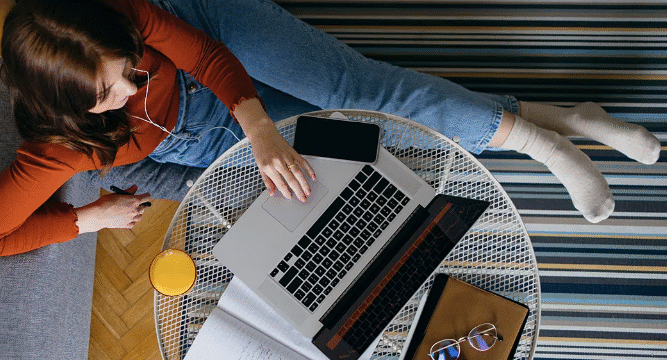Starting to learn from home for the first time can feel exciting—and maybe a little uncertain. Whether you’re picking up a new skill, returning to study after a break, or helping someone else begin their journey, home learning can be a flexible and rewarding experience.
Here’s a gentle guide to help you get started with confidence.
1. Choose the Right Learning Space
Begin by creating a calm, comfortable place to learn. It doesn’t need to be a full office—just a quiet corner with a table, chair, and good lighting can work wonders. Make sure it’s free from distractions and feels inviting so you’ll want to return each day.
2. Pick a Learning Topic You’re Excited About
The beauty of learning at home is that you can choose what you’re truly interested in. Think about something you’ve always wanted to know more about—gardening, a new language, basic computer skills, or even baking. When you start with a topic you care about, it’s easier to stay motivated.
3. Use Beginner-Friendly Online Resources
There are many free or affordable learning websites designed for newcomers. Some friendly platforms include:
-
Khan Academy – for subjects like math, science, and history
-
Skillshare – for creative skills like drawing, writing, and photography
-
Coursera and edX – for academic-style courses from universities
-
YouTube – for visual learners who enjoy step-by-step videos
Start with just one course or video series. There’s no rush!
4. Set a Gentle Learning Schedule
You don’t need to study for hours each day. Even 20–30 minutes at a time is a great start. Set aside a consistent time that works for your routine—morning, afternoon, or evening. Be kind to yourself as you build the habit.
5. Take Notes and Reflect
Writing down what you learn helps it stick. Keep a simple notebook or digital document where you jot down new ideas, questions, or reflections. It doesn’t need to be perfect—it’s your personal learning space.
6. Ask Questions and Join Online Communities
Many learning platforms offer forums where you can ask questions or chat with others. It’s okay not to understand something right away. Learning is a process, and asking for help is part of it. You’re not alone—many others are learning at home for the first time, just like you.
7. Celebrate Small Wins
Did you complete your first lesson? Take notes two days in a row? Understand a new word or idea? That’s worth celebrating! Every step forward builds your confidence and helps you stay motivated.
Final Thought
Learning at home is a friendly journey, not a race. Be patient with yourself, enjoy the process, and remember—it’s never too late to start learning something new. With a little curiosity and consistency, you can build skills, grow your confidence, and open new doors—all from the comfort of your own home.






